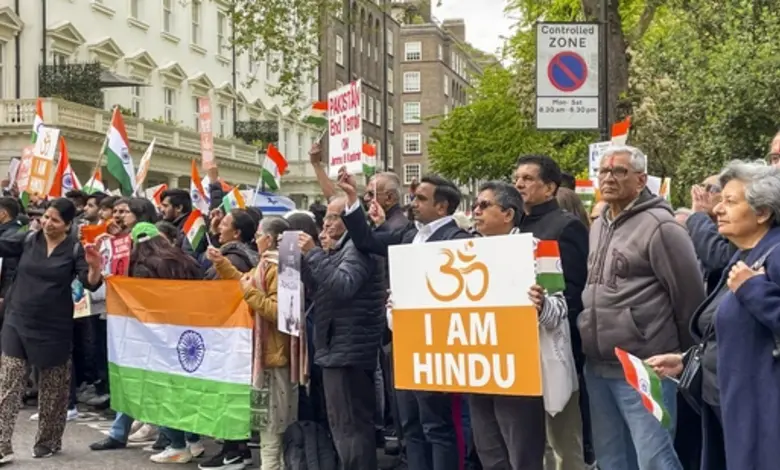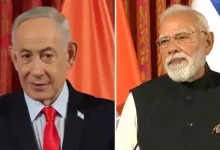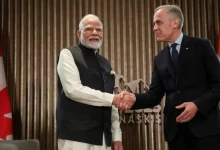Pahalgam Attack Sparks Diplomatic Fallout, Pro-India Protests in UK

The deadly terror attack in Pahalgam, Jammu and Kashmir, which claimed 26 lives, including 25 Indians and one Nepalese citizen, has triggered a cascade of diplomatic, legal, and public responses, intensifying tensions between India and Pakistan.
The National Investigation Agency (NIA) has taken charge of the investigation into the April 22 attack in Baisaran Valley, focusing on evidence collection and witness interviews to unravel the plot. In a sharp escalation, India suspended the 1960 Indus Waters Treaty and revoked all valid visas for Pakistani nationals, except diplomatic, official, and long-term visas for Hindu Pakistani nationals, the Ministry of External Affairs (MEA) announced on April 24.
China, a key ally of Pakistan, urged restraint on April 27 during a call between Chinese Foreign Minister Wang Yi and Pakistan’s Deputy Prime Minister Ishaq Dar. Beijing called for an impartial probe into the attack while reaffirming support for Pakistan’s sovereignty, according to a Chinese foreign ministry statement. Pakistan’s foreign ministry, in turn, denounced India’s visa suspensions and treaty suspension as “illegal,” with Dar thanking China for its backing.
In the UK, the Indian diaspora staged a large pro-India demonstration outside India House in London on April 27. Waving Indian flags and chanting “Bharat Mata ki Jai,” protesters expressed solidarity with India, outnumbering a smaller group of British Pakistani demonstrators.
Domestically, India has cracked down on suspected security threats. In Chhattisgarh’s Raigarh, two Pakistani nationals, Iftikhar Sheikh, 29, and Arnish Sheikh, 25, were arrested on April 27 for allegedly obtaining Indian voter ID cards fraudulently while holding valid Pakistani passports and long-term visas. Nationwide, authorities have conducted over 60 raids, demolished properties linked to suspects, and arrested individuals for remarks deemed supportive of Pakistan. In Assam, a woman was detained for “anti-national” comments, while in Bihar, a CPI leader was arrested for allegedly raising pro-Pakistan slogans.
India has ordered all Pakistani nationals to leave by April 27, with medical visas valid only until April 29, and advised Indian citizens to avoid travel to Pakistan. Maharashtra Deputy Chief Minister Devendra Fadnavis confirmed plans to deport all Pakistani nationals from the state by April 28.
The attack has also reverberated in India’s sports community. Hockey India President Dilip Tirkey condemned the incident and called for stringent anti-terrorism measures, while former cricketer Sourav Ganguly advocated cutting all cricketing ties with Pakistan.
As investigations continue and diplomatic tensions simmer, the Pahalgam attack has underscored deep-seated regional rivalries, with global implications.




